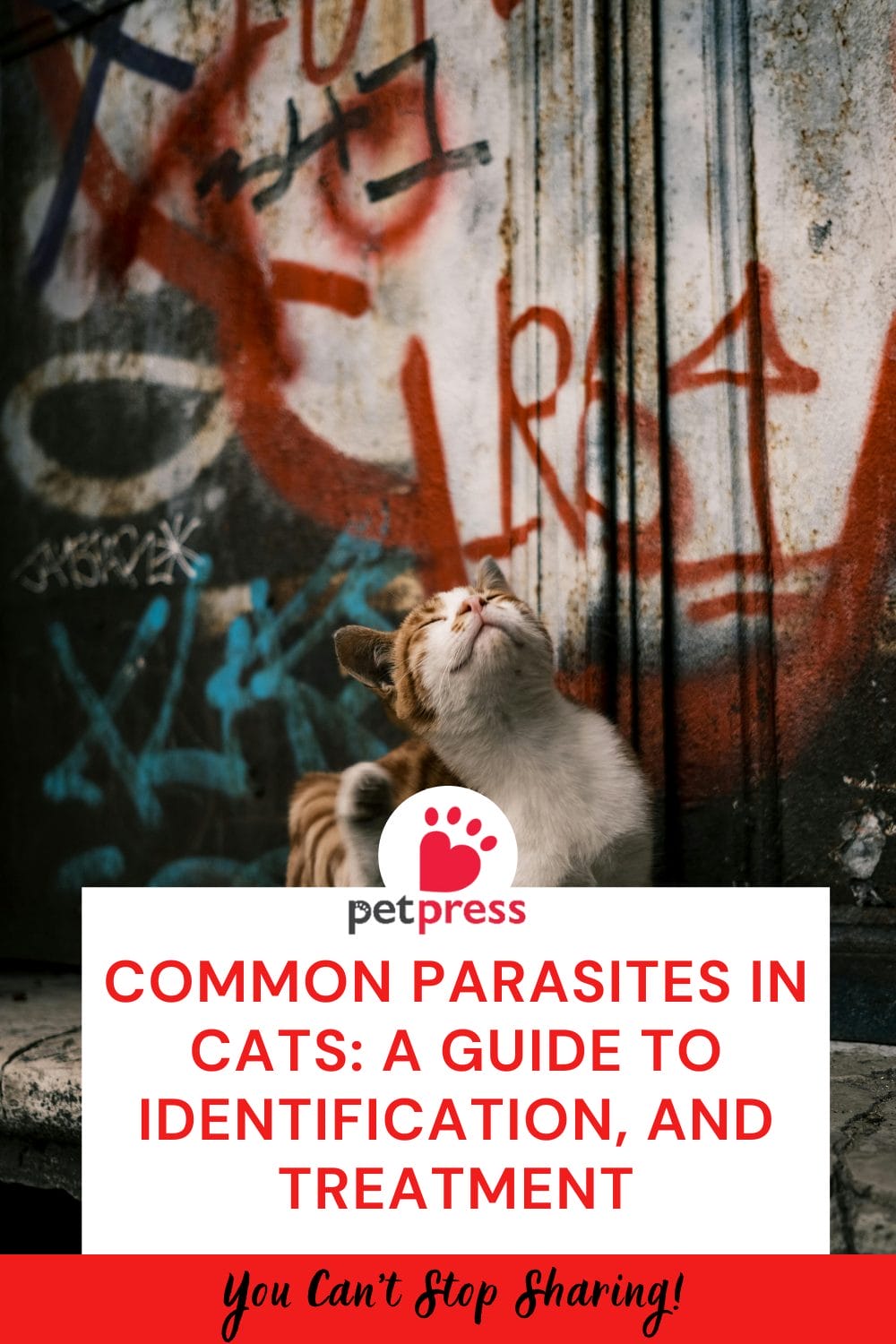
Common Parasites in Cats is a common problem in cats. Cats are wonderful companions, bringing joy and happiness to our lives.
As responsible pet owners, we must be aware of our feline friends’ potential health risks.
One significant concern is the presence of parasites in cats. These tiny organisms can cause various health issues, from minor irritation to severe infections.
In this comprehensive guide, we will explore the common parasites that affect cats, their historical context, importance, and effective measures to keep these pesky invaders at bay.
History and Significance
Parasites have long been a part of feline history, with cats acting as hosts for various organisms throughout the ages.
In ancient times, domesticated cats were invaluable in controlling rodent populations, but this close association also led to an increased risk of parasitic infestations.
Over time, humans recognized the potential harm parasites could cause to their feline companions and began developing methods to combat these invaders.
Today, parasites remain a significant concern for cat owners due to their potential impact on the health and well-being of our beloved pets.
Parasitic infections can lead to various symptoms such as weight loss, anaemia, gastrointestinal problems, skin irritations, and even life-threatening conditions.
Cat owners must be vigilant and proactive in preventing and treating these infections.
Types of Common Parasites in Cats

Fleas
Fleas are external parasites that can cause intense itching, and skin allergies, and transmit diseases. Regular flea prevention is essential to maintain a healthy cat and a flea-free home.
Ticks
Ticks are blood-sucking parasites that can transmit serious diseases, including Lyme disease and Ehrlichiosis.
Regular tick checks and preventative measures are vital, especially if your cat spends time outdoors.
Ear Mites
Commonly found in cats, ear mites can cause intense itching and discomfort.
They reside in the ear canal and can lead to ear infections if left untreated.
Intestinal Worms
Cats can be affected by various types of worms, including roundworms, tapeworms, hookworms, and whipworms.
These worms can cause weight loss, diarrhea, vomiting, and other gastrointestinal problems.
Heartworms
Heartworm disease is a serious and potentially fatal condition transmitted by mosquito bites.
Prevention is key, as treatment for heartworm disease can be challenging and costly.
Tips to Keep Parasites Away

Regular Veterinary Check-ups
Schedule routine visits to your veterinarian to ensure your cat receives preventive treatments and is free from parasites.
Vaccinations
Keep your cat’s vaccinations up to date, as some diseases can weaken their immune system and make them more susceptible to parasites.
Maintain a Clean Environment
Please regularly clean your cat’s living area, bedding, and litter box to reduce infestation risk.
Vacuuming and washing bedding at high temperatures can help eliminate fleas and their eggs.
Furthermore, try to give a balanced diet to your cat to boost their immunity.
Use Flea and Tick Prevention
Consult your veterinarian to determine which flea and tick prevention products are safe and suitable for your cat.
These products come in various forms, such as topical treatments, oral medications, and collars.
Practice Good Hygiene
Wash your hands after handling your cat, especially if they have been outdoors or in contact with other animals.
This helps prevent the transmission of parasites and other potential diseases.
Conclusion
Understanding common parasites in cats and taking appropriate preventive measures is essential for the overall health and well-being of our feline companions.
Regular veterinary care, proper hygiene practices, and the use of preventive treatments can significantly reduce the risk of parasitic infestations.
By staying proactive and informed, we can ensure that our cats live happy, healthy lives, free from the burden of parasites.
Frequently Asked Questions
Yes, indoor cats can still get parasites. Fleas and ticks can be brought indoors by humans or other animals, and some parasites, like intestinal worms, can be contracted through contaminated food or water.
While natural remedies may have some effectiveness, it is important to consult with your veterinarian before using them as a sole preventive measure. Many natural remedies lack scientific evidence of their efficacy.
The frequency of deworming depends on various factors, including your cat’s lifestyle and risk of exposure. Consult your veterinarian to determine the appropriate deworming schedule for your cat.
No, dog flea and tick products should never be used on cats unless explicitly approved by a veterinarian. Some ingredientsin dog products can be toxic to cats and cause severe adverse reactions.
While some parasites that affect cats can also infect humans, the risk is generally low. Maintaining good hygiene practices, such as washing hands after handling cats and avoiding direct contact with their faeces, can minimise the risk of transmission.
Remember, if you suspect your cat has a parasite infestation or if you have any concerns about your cat’s health, always consult a veterinarian for professional advice and appropriate treatment.
By being proactive and informed, we can ensure the health and well-being of our feline companions.
- Dogs Pooping Blood: A 2026 Guide for Concerned Pet Parents - February 23, 2026
- How to Celebrate a Dog’s First Birthday on a Budget: 2026 Guide - February 18, 2026
- Best Shampoo for Sensitive Skin Dog Grooming: 2026 Guide - February 12, 2026


GIPHY App Key not set. Please check settings